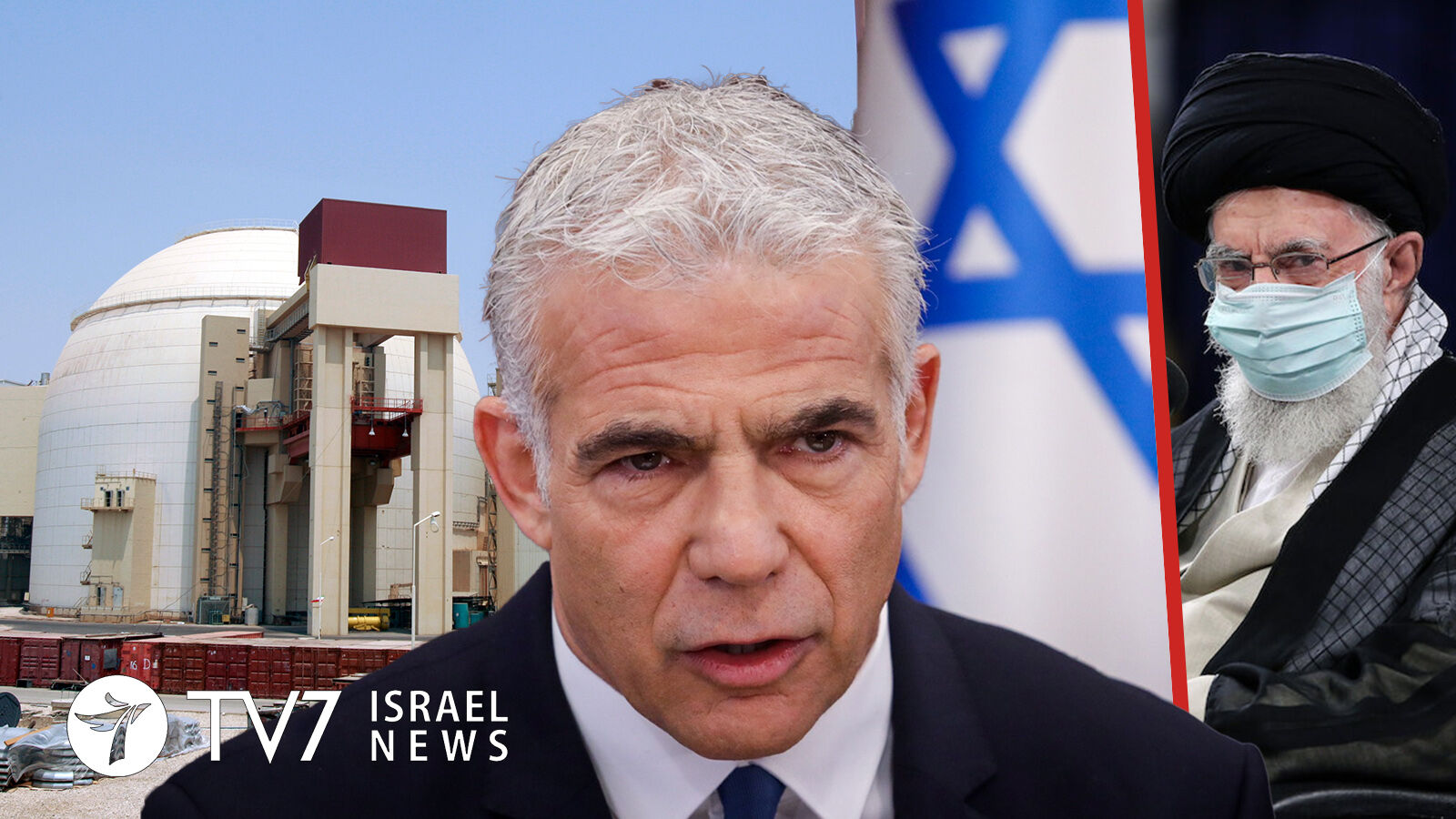Israel has long objected to the restoration of the Joint Comprehensive Plan of Action nuclear deal with Iran, and Jerusalem will not be obligated to it.
By Jonathan Hessen and Erin Viner
This, according to a statement from the office of Israeli Prime Minister Yair Lapid, stating that he reiterated the position in a conversation with French President Emmanuel Macron.
“The Prime Minister made clear to the President that Israel opposes a return to the deal and would not be obligated by such an agreement. Israel will continue to do everything to prevent Iran from attaining a nuclear capability,” stressed the Prime Minister’s Office (PMO).
During a lengthy discussion by the two leaders on the Iranian nuclear dispute, Prime Minister Lapid not only reiterated Israel’s opposition to a return to the agreement,” but also conveyed “the need for a clear and unequivocal message that there will be no additional concessions to the Iranians” at the Vienna Talks.
The other parties to the JCPOA – the European Union, E3 nations of France, Germany and Britain – have been participating in indirect talks in Austria between Iran and the United States aimed at salvaging the nuclear deal, under which Tehran had agreed to curbs on its nuclear program in return for the lifting of international sanctions. After former US President Donald Trump withdrew from the accord in 2018, the Ayatollah regime responded by openly violating critical nuclear limits. The administration President Joe Biden has been undertaking efforts to bring both sides back into compliance with the deal, which now appears near finalization.
Israel has long opposed the JCPOA as too weak to prevent Iran from pursuing a bomb, impede ballistic missile development or reduce support of its proxies such as the Hamas, Palestinian Islamic Jihad (PIJ) or Hezbollah terror organizations.
The Islamic Republic of Iran has repeatedly threatened to annihilate the Jewish State.
Prime Minister Lapid conveyed Israel’s conviction to President Macron “ that the Iranians are continuing to conduct negotiations on an offer which was presented as ‘take it or leave it,’” said the PMO, adding that the Israeli leader “also warned that in that offer, there are new elements that go beyond the limits of the original JCPOA, and that it will pave the way for significant investment to flow into Iran’s terrorist network and to strengthening the Iranian military.”
The statement underscored that the French President responded by emphasizing his own “commitment to preventing Iran from acquiring a nuclear weapon.”
The conversation came shortly after US President Biden also discussed the Vienna Talks with his French counterpart, German Chancellor Olaf Scholz and British Prime Minister Boris Johnson. A White House statement noted that the four leaders addressed “the need to strengthen support for partners in the Middle East region, and joint efforts to deter and constrain Iran’s destabilizing regional activities.”
Iranian Foreign Ministry Spokesman Nasser Kanaani cynically accused the United States of prevaricating on an EU draft proposal to restore the JCPOA. Even though he asserted, “in general, I can say that we have made relatively good progress so far,” Kanaani nevertheless insisted that “we cannot say that we have reached an agreement until all issues are agreed upon.” He also maintained the, “if Iran needs an agreement – surely the American and European sides need an agreement more than the Iranian side.”
The latest round of negotiations was resumed after an impasse during which the Islamic Republic refused to reengage in talks while simultaneously advancing nuclear-related activities.
Despite the EU’s having sent its so-called “final offer” to Iran, the bloc’s High Representative for Foreign Affairs and Security Policy Josep Borrell altered his position yesterday when he made a positive response to suggested Iranian amendments to the text.
“There was a proposal from me as Coordinator of the negotiations… and a response from Iran that I considered reasonable. It was transmitted to the United States which has not yet responded formally,” said Borrell.
